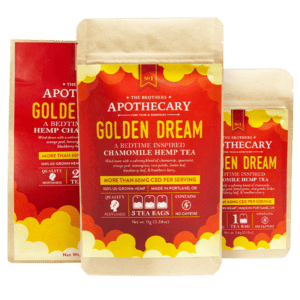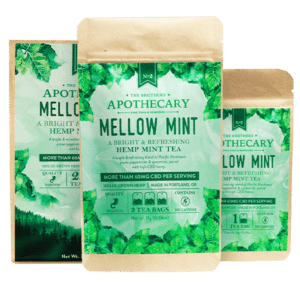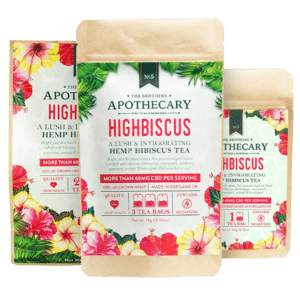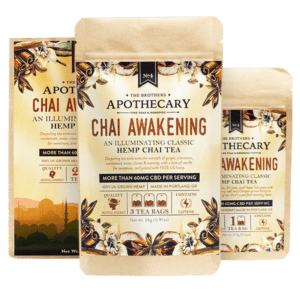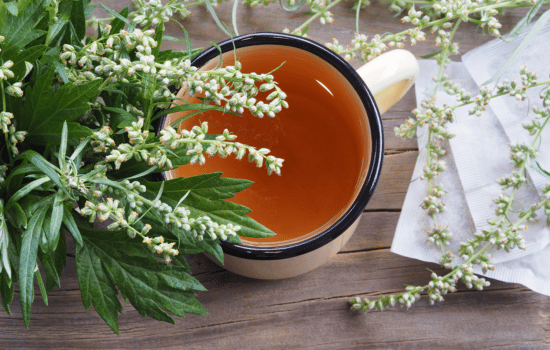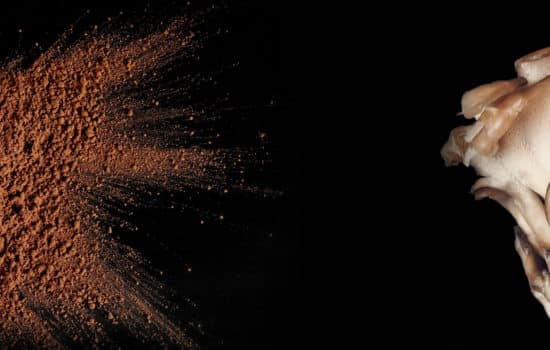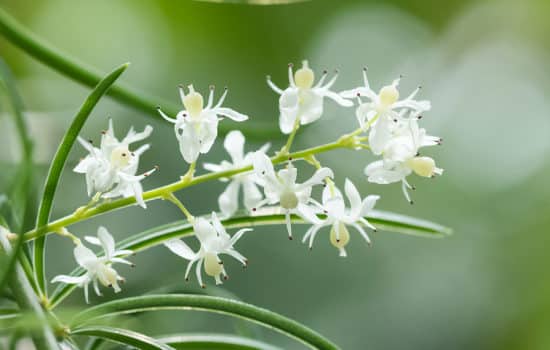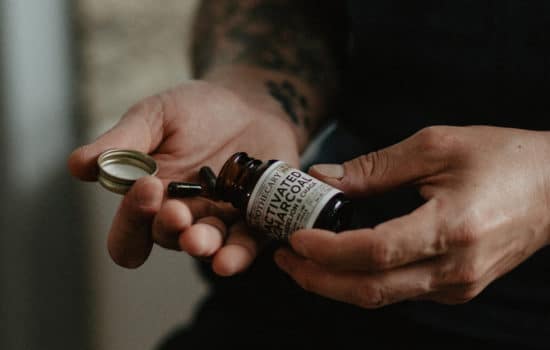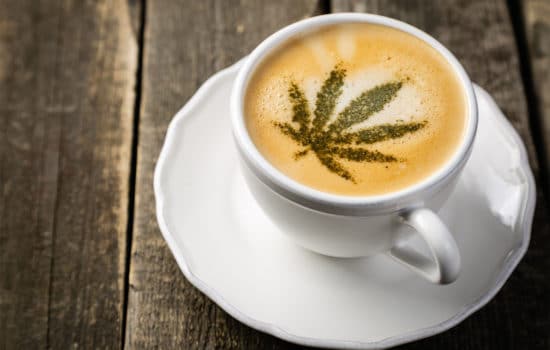CBD is a safe way to boost your wellness game as a naturally soothing plant compound. It can help soothe tension, ease discomfort, and promote rest and relaxation. But, while beneficial to your well-being, you may be wondering if CBD can cause problems on an upcoming drug test.
While drug tests don’t look for CBD specifically, there are a few factors to consider if you undergo regular drug testing or have one coming up.
Will CBD Show Up On My Drug Test?
CBD, or cannabidiol, is one of the main phytocannabinoids found in the cannabis plant. While drug tests don’t look for CBD, they do look for THC, another phytocannabinoid in the cannabis plant.
All federally legal CBD products must be derived from industrial hemp, which is a strain of the Cannabis sativa plant. As of the 2018 Farm Bill, hemp is defined as a cannabis plant that contains less than 0.3% THC content in its dry weight.
Legal CBD products, then, can have up to 0.3% THC content. And while federally legal and non-intoxicating, these trace amounts of THC may lead to a positive drug test.
If you’re interested in using CBD but can’t risk the possibility of THC showing up on a drug test, read on to learn more about the options available.
Does CBD Cause a High?
CBD is not psychoactive and does not cause a high, regardless of consumption. While THC is psychoactive, the amount included in legal CBD products is not enough to cause a high or lead to an altered mental state.
CBD vs. THC: What’s the Difference?
So, what sets these two phytocannabinoids apart, and why is one federally legal while the other still is not?
From a scientific standpoint, the difference lies in a single slight variation between the otherwise identical structural arrangement of each cannabinoid. Due to the molecular variation, CBD and THC play different roles within the body’s endocannabinoid system (or ECS).
The ECS is an internal messaging network that uses naturally produced endocannabinoids and cannabinoid receptors to help regulate essential body functions such as sleep, mood, and appetite, to name a few.
The structural arrangement of THC is thought to allow the cannabinoid to bind directly with cannabinoid receptors in the brain. This is likely the reason for THC’s psychoactive effects.
On the other hand, CBD doesn’t bind with receptors directly but instead supports our body’s naturally produced endocannabinoids as those endocannabinoids bind with the body’s cannabinoid receptors.
Despite these differences, CBD and THC can provide benefits and are quite safe.
As more states legalize cannabis, we hope that concerns about THC showing up on a drug test become a thing of the past. But, in the meantime, learning about the different types of CBD available can help you best prepare for an upcoming drug test.
What Types of CBD Are There?
The three types of CBD you’ll find are full-spectrum, broad-spectrum, and isolated CBD.
Full-Spectrum
Full-spectrum CBD extract includes all of the compounds found within the hemp plant: the terpenes, flavonoids, natural fatty acids, and cannabinoids, including the small amount of THC that falls within the legal limit.
While many people prefer full-spectrum CBD for its entourage effect – which is when the various plant parts work together to enhance the beneficial effects of CBD – that THC included may show up on a drug test. It is unlikely, but you may want to avoid full-spectrum consumables if you don’t want to risk it.
Broad-Spectrum
In broad-spectrum CBD, the THC content is filtered out during extraction. This leaves you with a product with all of the terpenes, flavonoids, and cannabinoids except THC.
Isolate
Now, last but not least is CBD isolate. As you may have guessed, CBD isolate has all other plant parts filtered out, leaving you with an isolated form of CBD.
CBD isolate products are over 99% pure CBD. However, we must note that even some CBD isolate products can contain traces of other cannabinoids, including THC. This is simply due to inconsistencies in extraction.
Which Types of CBD Are THC-Free?
Broad-spectrum and isolated CBD products are nearly always completely THC-free. However, there is always a small chance that extraction or testing inconsistencies can cause extremely low amounts of THC to go undetected even in isolated products.
Any potential amount of THC left in broad-spectrum or isolated CBD products is usually negligible, meaning that it is extremely unlikely that any THC will remain in those products and even less likely that there would be enough to result in a positive drug test.
However, you want to play it safe and be cautious with your CBD use if you know you have a drug test coming up.
You can also look for CBD isolate products that are over 99.9% CBD and can be verified in the third-party testing results. Your best bet is to check product test results to ensure they include “LOQ” (Limit of Quantification) or “ND” (Non Detect).
Another option is to use broad-spectrum or isolated CBD topicals, such as our CBD balm or Pain Away Roller.
Will Isolated CBD Topicals Show Up On a Drug Test?
CBD topicals are applied directly to the skin to nourish dry or irritated skin or ease localized discomfort.
CBD applied this way can be absorbed through the pores to reach nearby cannabinoid receptors beneath the skin, but does not typically enter the bloodstream, so there is virtually no chance of isolated CBD topicals showing up on a drug test.
Which Types of CBD Contain THC?
Legally, full-spectrum CBD products can contain up to 0.3% THC content.
Will Topicals Containing THC Show Up On a Drug Test?
Since topicals are not usually absorbed into the bloodstream, it is extremely unlikely that CBD topicals will cause a positive drug test result, even if the product contains THC. Choosing an isolated CBD topical, though, lowers that risk even further.
How Can I Ensure That My Drug Test Won’t Show THC?
Read Labels Carefully
Always check the labels to see whether the product uses full-spectrum, broad-spectrum, or isolated CBD extract. Labels should also list all ingredients and reveal the percentage of any THC cannabinoids included.
To further verify that a product’s label accurately reflects what is inside, always shop from reliable brands that are transparent with their third-party test results.
Choose Reliable Brands
The main risk associated with CBD comes from using products that are inaccurately labeled.
Third-party lab tests not only ensure that ingredients are accurately labeled, but also that the dose listed on the product is true to what is inside, and that there is nothing contaminating the product, such as heavy metals or pesticides.
If a company isn’t transparent with their third-party testing results, it is best to avoid them.
When looking at test results of broad-spectrum or isolated CBD products, check to see if the results include “LOQ” (Limit of Quantification) or “ND” (Non Detect) to verify that THC levels have been accounted for.
Here at The Brothers Apothecary, we source all of our products from trusted, organic industrial hemp, and all of our products include QR codes linking to the full lab-tested results.
How Long Does CBD Stay in Your System?
The effects of CBD typically last for two to eight hours, although the CBD can stay active in the body for longer.
Typically, CBD stays within the body for anywhere between two to five days. Depending on how much CBD you use and the method by which you consume CBD, it can last in the body for up to two weeks. CBD and THC can both build in the body over time, meaning that the more consistently you use CBD, the longer it may stay in your system.
The Bottom Line
CBD is a safe and legal way to support your physical and mental wellness by promoting relaxation and helping soothe discomfort. However, if you have an upcoming drug test or are drug tested regularly, it is best to be careful with which CBD products you use.
As cannabis becomes more widely accepted, we hope to see drug tests going out of style. But, until then, you can lower your risk of testing positive for THC by using trusted and third-party tested isolated CBD products or CBD topicals from The Brothers Apothecary!
Sources
Jesse Richardson is the co-founder of The Brothers Apothecary. He's an avid tea drinker and the primary creator behind The Brothers' products. An undergraduate of UCLA for Political Science, Jesse currently studies Medicinal Plants at Cornell University and The International School of Herbal Arts & Sciences.



